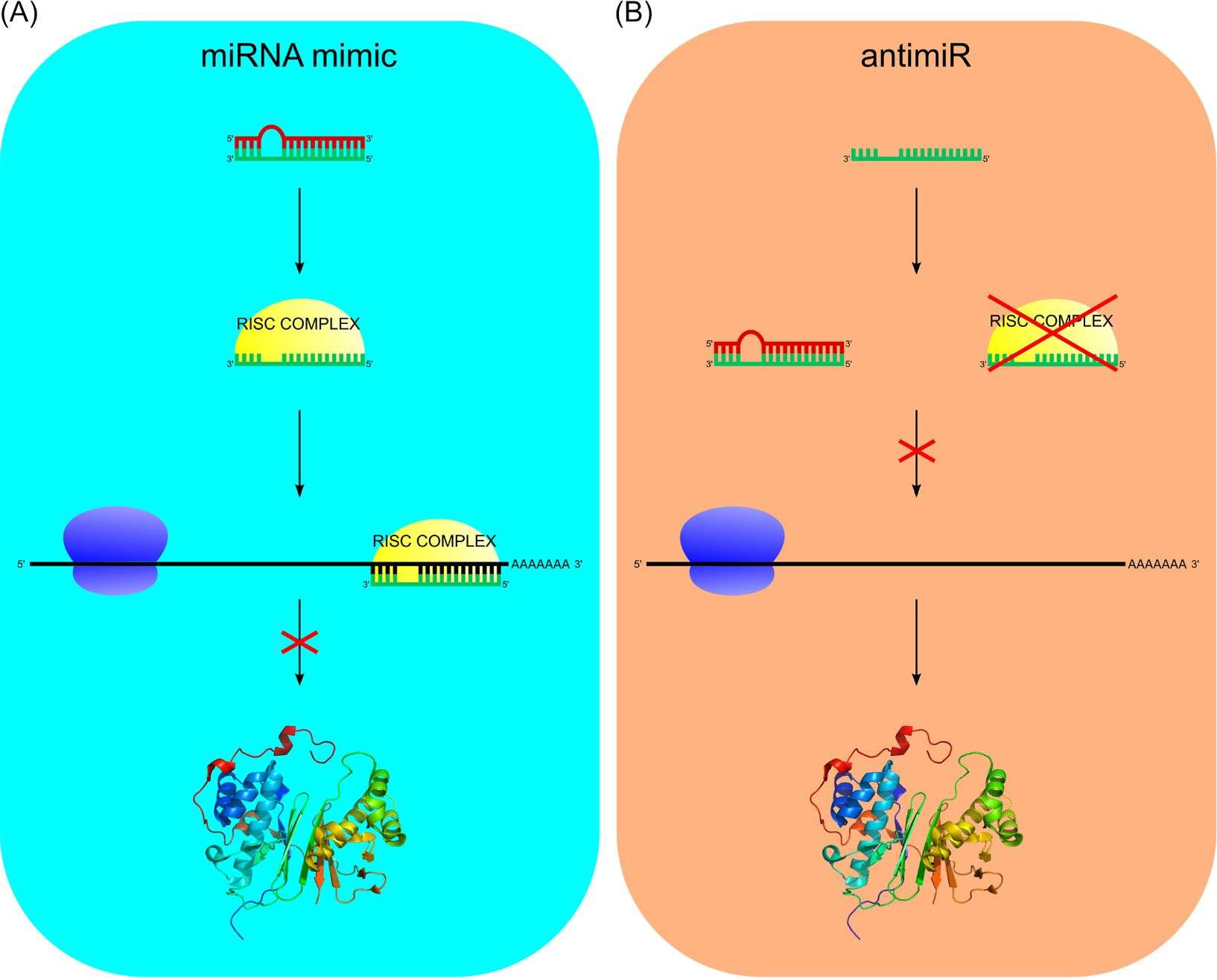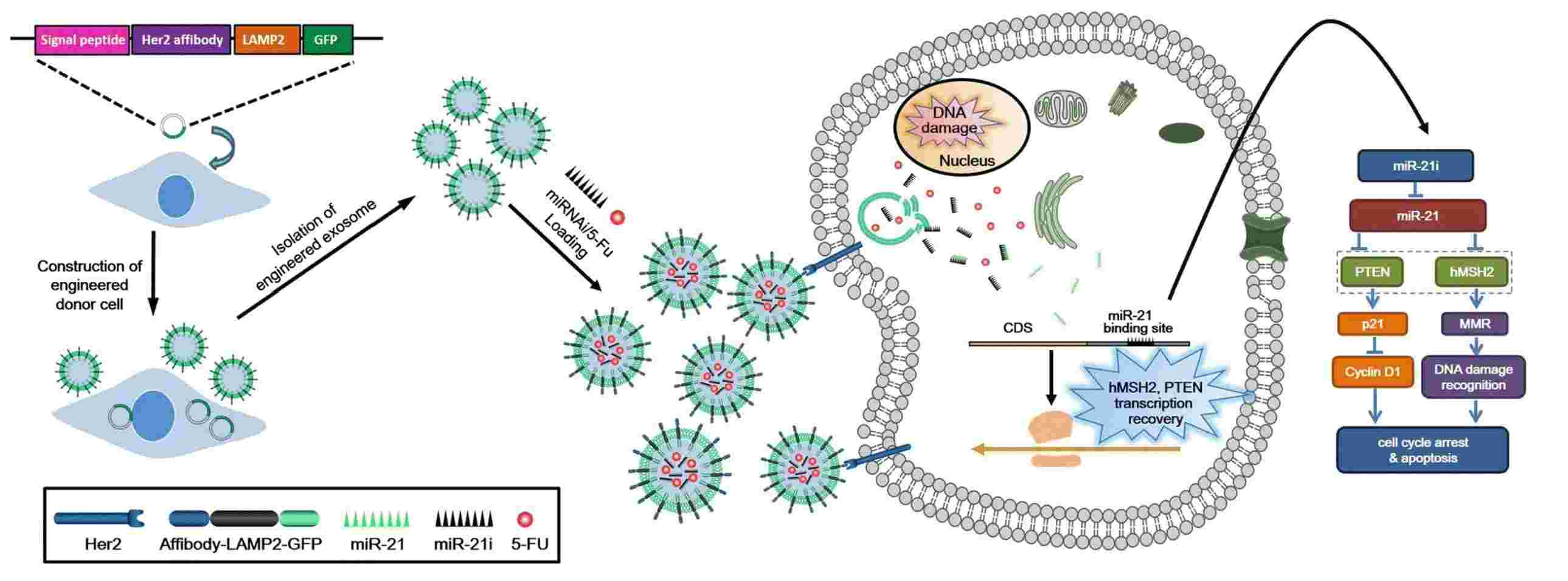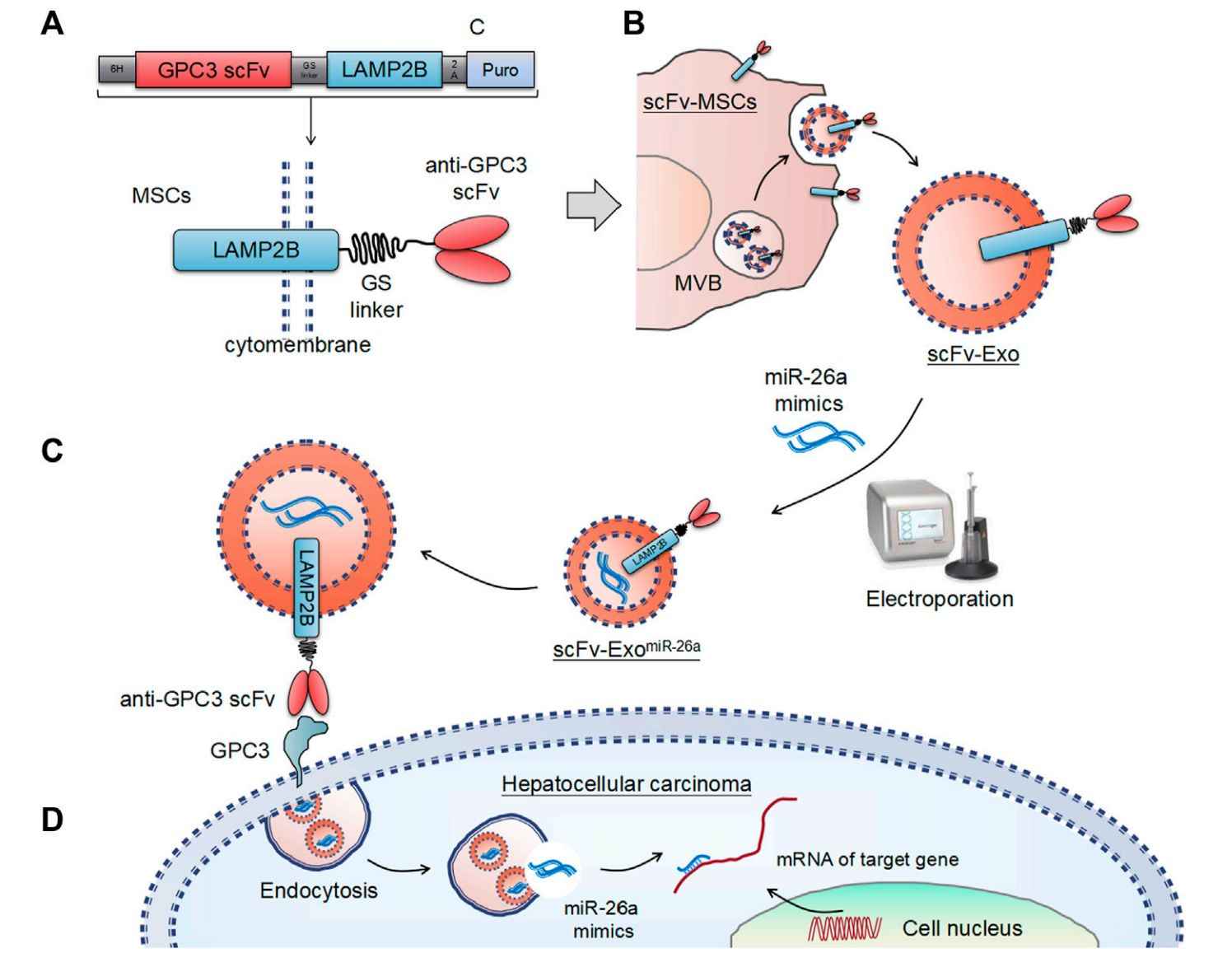Exosomes for miRNA Delivery
Exosomes are extracellular vesicles derived from endocytosis and are thought to play a critical role in intercellular communication, antigen presentation, and dissemination of infection factors. Various proteins, messenger RNA (mRNA), and microRNA (miRNA) are carried by exosomes to recipient cells. Since exosomes protect encapsulated small RNAs from the effects of ribonucleases (RNases) in body fluids, exosomes are ideal carriers for nucleic acid drugs.
What is miRNA?
miRNAs are non-coding RNAs approximately 22nt in length that can target mRNAs, leading to mRNA degradation or translational repression by inhibiting protein expression. Research has shown that miRNA levels can influence the regulation of disease onset, progression, and drug resistance. Therefore, miRNAs can be used as promising gene drugs for the treatment of cancer, neurodegenerative diseases, and many other difficult diseases. For example, miR-34a and miR-16-5p have therapeutic potential for cancer treatment because miR-34a can be involved in tumor suppression and autophagy regulation, while miR-16-5p can induce apoptosis and inhibit cell migration. However, its in vivo degradation properties limit further clinical applications.
 Figure 1. Schematic of miRNA-based therapy. (L Volpini, et al., 2023)
Figure 1. Schematic of miRNA-based therapy. (L Volpini, et al., 2023)
Why Deliver miRNA by Exosomes?
miRNAs are a promising anti-cancer solution. Despite the ability to target multiple pathways, miRNA-based therapies remain difficult to apply clinically. This is attributed to the complex pathophysiological environment of cancer, including dense tumor mesenchyme, unstructured vasculature, immunosuppression, multidrug resistance, and hypoxia. In the circulation, miRNA molecules are small and unstable and must avoid enzymatic degradation, renal clearance, and phagocytic interception. Inside the tumor, the physicochemical properties of miRNA molecules, such as high molecular weight, negative charge, and high hydrophilicity, do not allow them to efficiently cross negatively charged biofilms and enter cancer cells. Therefore, an efficient delivery system is necessary.
Exosomes have the advantage of crossing biological barriers and achieving long-distance communication with cells. In terms of safety and efficient cargo delivery, exosomes are considered promising miRNA carriers.
- Exosomes have the natural ability to target specific tissues and communicate between cells.
- Exosomes have a natural biological barrier and biocompatibility, reducing the risk of immune reactions and cytotoxic effects.
- Exosomes protect miRNAs from degradation in the bloodstream and enhance their stability.
Application Examples of Exosome-based miRNA Delivery
5-Fluorouracil (5-FU) is commonly used in the treatment of colorectal cancer (CRC), but resistance to 5-FU is one of the main reasons for CRC treatment failure. Research has found that microRNAs (miRNAs) can reverse this predicament by regulating signaling pathways involved in the initiation and progression of CRC. However, how to deliver miRNAs to target cells safely and effectively has become a major challenge. Researchers used engineered exosomes to deliver the anticancer drug 5-FU and miR-21 inhibitor oligonucleotide (miR-21i) to Her2-expressing cancer cells. The results showed that the engineered exosome-based co-delivery system of 5-FU and miR-21i could effectively promote cellular uptake and significantly down-regulate miR-21 expression in the 5-FU-resistant HCT-116 5FR cell line. Co-delivery of both with engineered exosomes effectively reversed drug resistance compared to treatment with miR-21i or 5-FU alone.
 Figure 2. Exosomes deliver 5-FU and miR-21i to HCT-116 5FR human colon cancer cells. (Liang G, et al., 2020)
Figure 2. Exosomes deliver 5-FU and miR-21i to HCT-116 5FR human colon cancer cells. (Liang G, et al., 2020)
miRNA-based therapies have promising applications in clinical antitumor therapy, but good miRNA drug delivery vectors are lacking. Exosomes secreted by mesenchymal stem cells (MSC) are safe. Researchers designed a delivery system using exosomes modified with single-stranded variable fragments (scFv) derived from human umbilical cord blood MSC. The anti-GPC3 scFv-modified exosome was utilized to effectively deliver miR-26a to GPC3-positive hepatocellular carcinoma cells, inhibiting cell proliferation and migration by regulating the expression of miR-26a downstream target genes. The results showed that the exosome-based delivery system exhibited good anti-tumor effects in vivo without obvious side effects.
 Figure 3. Schematic of exosome-based drug delivery system. (Mahati S, et al., 2021)
Figure 3. Schematic of exosome-based drug delivery system. (Mahati S, et al., 2021)
Our Products
Targeting miRNAs in multiple pathways holds promise as a potential solution for the treatment of cancer. Exosomes, as natural carriers of miRNAs, are an effective delivery system. Creative Biostructure provides exosomes Isolated from cancer cell lines to help clients explore the potential application of exosomes in miRNA delivery for cancer treatment.
| Cat No. | Product Name | Source |
| Exo-CH02 | HQExo™ Exosome-A549 | Exosome derived from human non-small cell lung cancer cell line (A549 cell line) |
| Exo-CH06 | HQExo™ Exosome-MCF-7 | Exosome derived from human breast cancer, noninvasive cell line (MCF-7 cell line) |
| Exo-CH11 | HQExo™ Exosome-K-562 | Exosome derived from human pleural effusion, leukemia chronic myelogenous (K-562 cell line) |
| Exo-CH13 | HQExo™ Exosome-U87MG | Exosome derived from human glioblastoma astrocytoma (U87 MG cell line) |
| Exo-CH18 | HQExo™ Exosome-LnCAP | Exosome derived from human prostate adenocarcinoma (LnCAP cell line) |
| Exo-CH21 | HQExo™ Exosome-A375 | Exosome derived from human malignant melanoma cell line (A375 cell line) |
| Exo-CH24 | HQExo™ Exosome-SK-BR-3 | Exosome derived from human breast carcinoma cell line (SK-BR-3) |
| Explore All Exosomes Isolated from Cancer Cell Lines | ||
Creative Biostructure specializes in exosome research and provides a one-stop exosome service including isolation, characterization, engineering, functional analysis, and drug carrier design. If you are interested in our services and products, please feel free to contact us for more information.
References
- L Volpini, et al. Advances in RNA cancer therapeutics: New insight into exosomes as miRNA delivery. Aspects of Molecular Medicine. 2023. 1:100005.
- Liang G, et al. Engineered exosomes for targeted co-delivery of miR-21 inhibitor and chemotherapeutics to reverse drug resistance in colon cancer. J Nanobiotechnology. 2020. 18(1): 10.
- Mahati S, et al. Delivery of miR-26a Using an Exosomes-Based Nanosystem Inhibited Proliferation of Hepatocellular Carcinoma. Front Mol Biosci. 2021. 8: 738219.
- Fang Z, et al. Exosome based miRNA delivery strategy for disease treatment. Chinese Chemical Letters. 2022. 33(4): 1693-1704,